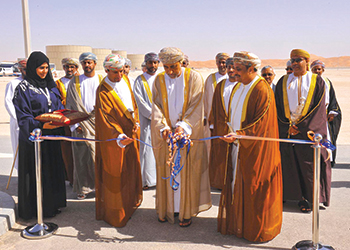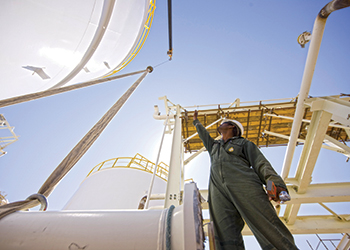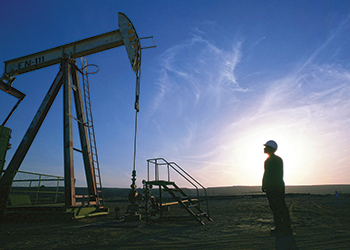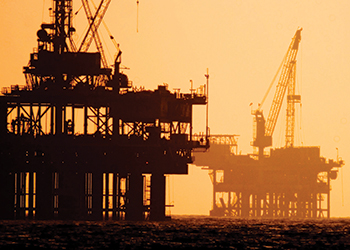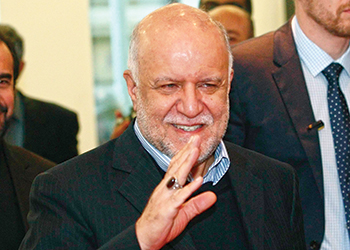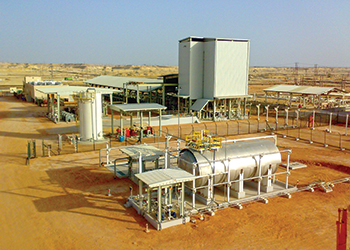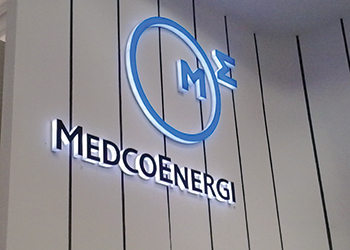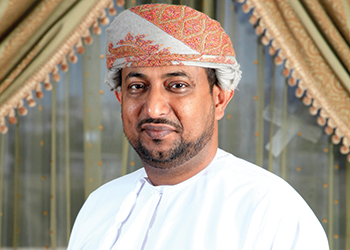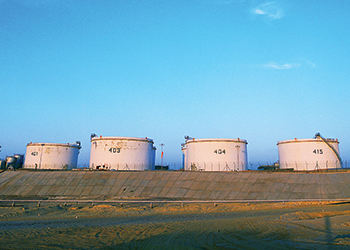
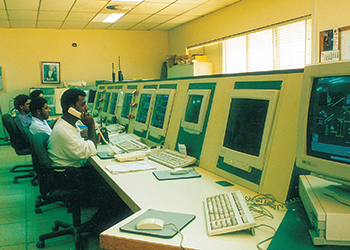 OOC ... teaming up with Ipic of Abu Dhabi for the refinery
OOC ... teaming up with Ipic of Abu Dhabi for the refinery
The proposed refinery would be the largest in Oman, a country that pumps close to 1 mbpd of crude but currently has only 222,000 bpd of total refining capacity. It would also be closer to Oman’s main onshore oil fields
Oman’s government has appointed a new board of directors for its flagship petroleum investment arm, Oman Oil Co, to be chaired by Oil and Gas Minister Mohammed Al Rumhy.
The move increases oil ministry oversight of OOC at a time when lower oil prices are forcing Muscat to make tough financial choices as it seeks to promote Oman’s economic development with strained resources.
Even within the petroleum sector, which continues to generate the bulk of Oman’s state revenue, that means setting clear priorities for project development. However, all recent signs point to the construction of a new 230,000 barrels per day (bpd) refinery and petrochemicals complex at Duqm – a $15 billion project in which OOC has a 50 per cent stake – as ranking close the top of the government’s economic agenda.
The proposed refinery would be the largest in Oman, a country that pumps close to 1 mbpd of crude but currently has only 222,000 bpd of total refining capacity. It would also be closer to Oman’s main onshore oil fields than the country’s two existing refineries, which are both located on the Gulf of Oman in the north of the country.
Moreover, the government considers Duqm’s location strategic, as it lies roughly at the centre point of Oman’s long Arabian Sea coast and is well situated to accommodate maritime trade with both the Indian subcontinent and East Africa. The refinery would anchor a broader economic development scheme also encompassing a major port, dry dock, petrochemicals plants, industrial development and tourism.
OOC’s current investment strategy is closely linked to Duqm in the wake of a management shake-up and restructuring that followed the conviction in 2013 of the company’s former CEO for taking bribes.
The current CEO, Issam Al Zadjali, says that OOC would increase its focus on Duqm while divesting some other assets from a broad domestic and international portfolio encompassing shipping, power, petrochemicals and metals ventures as well as petroleum sector projects.
With regard to additional Duqm-focused investments, OOC’s Oman Oil Marketing Co unit already has an agreement with Port of Duqm Co to develop a bunkering terminal and ancillary port facilities.
The oil marketer’s chairman is Salim Al Rawas, who was also chairman of OOC.
His succession at OOC by Al Rumhy brings to the group direct, top-level government connections that could do much to ensure that all its developments at Duqm stay on track. An experienced and influential minister who has held his current post for nearly two decades, Al Rumhy has previously championed other significant Omani energy projects deemed essential for the success of Muscat’s wider vision for Duqm as a strategic port and liquids-trading hub on the Arabian Sea coast and a catalyst for industrial development.
One was the BP-led Khazzan gas project, which Muscat enabled through its December 2013 decision to take a 40 per cent equity stake in the proposed $16 billion development of challenging tight gas resources.
"A big chunk of Khazzan gas will be pumped to Duqm because the special economic zone there is set to become a major new consumer of natural gas," Al Rumhy says.
Tellingly, first gas from Khazzan is expected in 2017, just as state-owned Oman Gas Co is slated to bring into service a new gas pipeline to serve the Duqm SEZ.
"Unfortunately, we’re in a situation where we cannot supply everybody that wants gas. Thus, in selecting those who will receive gas, we will look at the projects that give us maximum value," Al Rumhy says, underscoring the special status of Duqm as a strategic development for Muscat.
The proposed refinery, to be developed as a joint venture between OOC and Abu Dhabi government-owned International Petroleum Investment Co, is slated for completion in 2019 and will be one of Duqm’s largest gas consumers, so Al Rumhy’s groundwork with BP to secure a reliable domestic gas supply was essential.
The refinery’s strategic and economic importance to Muscat stretches beyond supplying Oman’s growing domestic fuel needs, as it will process a mixture of Omani and Abu Dhabi crude, thus setting Duqm on course to becoming a regional hub for petroleum exports from the Gulf region.
If that initiative is successful, it could significantly increase Oman’s leverage in the growing but increasingly competitive Asian oil market – an important consideration for the Arab world’s biggest oil producer outside Opec.
It could also position Oman in future decades to become a major supplier of crude and fuels to emerging African economies.
Al Rumhy, who was appointed oil and gas minister in December 1997, has been influential in persuading Muscat to allocate resources to development at Duqm, which was previously a sleepy fishing village. Now, as chairman of OOC, he will preside over a board loaded with financial experience.
He is to be joined on OOC’s board by Darwish Al Muharbi, a senior Omani bureaucrat who is currently undersecretary for administrative and financial affairs at the ministry of health, and four private-sector representatives with backgrounds in finance and investment.
Preliminary work on the refinery is well advanced. OOC and Ipic awarded the front-end engineering design contract in March 2014 while selecting Technip to provide project management services. Prequalification of bidders for the main engineering, procurement and construction contract began in October 2014, even as a steep slide in international oil prices gathered momentum.
Nonetheless, a decision earlier this year to delay construction of the Duqm petrochemicals complex until after completion of the refinery was interpreted by some as a sign of strained project finances. The appointment of a new board for the company may be aimed at countering such perceptions.
In a further sign that refinery-related development was still moving ahead, Port of Duqm announced it would shortly launch a tender for a contract to develop a liquids terminal to handle the refinery’s import and export requirements. The terminal’s start-up is slated for 2017.










































































